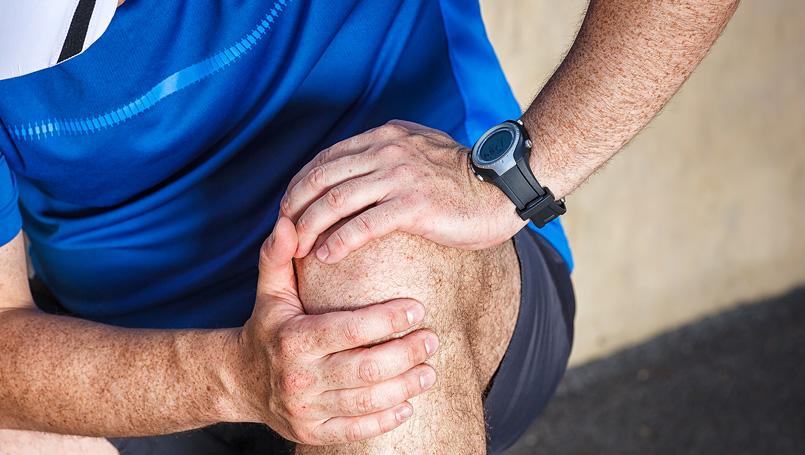
If you type “knee” into Google, the suggested topic that pops up first is “knee pain.”
That’s not a coincidence. At some point, most of us have experienced knee pain caused by everything from everyday wear and tear to sports, recreation or injuries. It knows no age, either. Depending on your activity level and health, you could experience knee pain as a young person, or as a senior.
What causes knee pain?
Because of the use our knees get every day, there are many causes for pain: injuries, mechanical problems, arthritis and other conditions. Some of the more common conditions include ACL injuries, bursitis, arthritis, dislocated knee and a torn meniscus. You can also injure your knee if you have foot or ankle pain that affects your gait. Limping around can put excess wear on your joints, causing more pain.
Know the signs and risk factors
So, you think your knee is “acting up.” These symptoms could be signs of an injury or developing condition:
- swelling and stiffness
- redness and warmth to the touch
- weakness or instability
- popping or crunching noises
- inability to fully straighten the knee
Of course, making an appointment to see your doctor isn’t a bad idea, especially if the pain sticks around. You don’t have to live in pain. But if you notice that you can’t bear weight, have serious swelling, you can’t move your knee, you see a deformity or if your knee feels unstable, don’t wait to make an appointment.
Several factors can put you at risk for knee pain. For example, pain from “that old football injury” isn’t a myth. Previous injury to your knee can cause pain for years. So can excess weight, lack of flexibility or strength, and certain sports such as jogging, skiing and basketball.
Dealing with knee pain
Put off or prevent knee pain by maintaining a healthy weight, wearing shoes that fit properly and even getting a lesson or two from a professional in your sport of choice can be a lifesaver when it comes to your knees.
In the meantime, try over-the-counter pain relievers and ice or heat to keep the swelling down. Rest up when you’re feeling your knee aching and consider trying a compression bandage. The bandage should be tight enough to prevent fluid build-up, but not so tight as to affect your circulation.
If you decide it’s time to see a doctor, it’ll be helpful if you can remember when the pain first started, what you were doing when it happened, and what (if anything) brings you relief.
Your doctor might suggest physical therapy to strengthen the muscles around your knee at first, and maybe even a steroid injection. Surgery could be an option as well. You and your doctor will decide on a treatment plan based on several factors, including what you want from your knees and the activity level of your lifestyle.
Remember, you don’t have to live with pain. There are many options available for you and you can choose your comfort level. Be sure to talk with your doctor to get an idea of the course your knee pain will follow and how you can treat it.
The future of knee pain treatment is here today at Beaumont. Our orthopedic knee surgeons care for patients with a full range of disabling knee joint disorders. From the latest knee replacement techniques to regrowing your own knee cartilage, we have whatever you need to relieve your knee pain.
Information provided by Lige Kaplan, M.D., Beaumont orthopedic surgeon.
